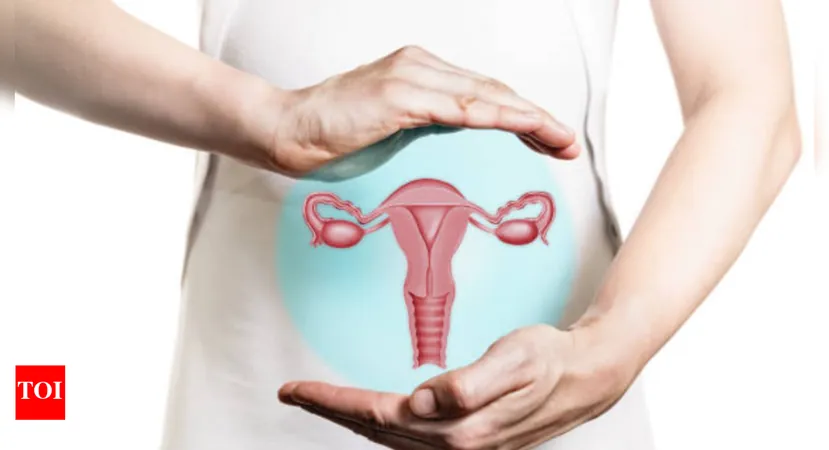
Cervical Cancer Survivors: An Unexpected Risk for Anal Cancer Revealed!
2025-09-16
Author: Li
Cervical Cancer Survivors at Double the Risk of Anal Cancer
In a groundbreaking study by the MUSC Hollings Cancer Center, researchers have unearthed a shocking truth: women who have survived cervical cancer are nearly twice as likely to develop anal cancer later in life compared to the general population. Alarmingly, this risk escalates with age and the passage of time since their initial diagnosis, particularly affecting those between the ages of 65 and 74.
The Study Unveiled: Analyzing Over 85,000 Cases
The research team meticulously examined the health records of over 85,000 U.S. women diagnosed with cervical cancer, utilizing extensive data from the National Cancer Institute’s SEER database. They tracked these women for up to twenty years to pinpoint how many ultimately developed anal cancer, and the findings are indeed eye-opening.
Why Awareness is Key: Understanding the Risk
The results were startling: cervical cancer survivors face nearly double the risk of developing anal cancer as they age. Particularly concerning is the significant increase in risk for women who are more than 15 years past their cervical cancer diagnosis. In fact, the incidence of anal cancer in this group now surpasses the threshold prompting routine screening.
The HPV Connection: What Causes This Increased Risk?
What lies behind this troubling trend? Both cervical and anal cancers are largely associated with the human papillomavirus (HPV). While HPV is commonly recognized as a leading cause of cervical cancer, it also accounts for the majority of anal cancer cases. The concerning factor is that the virus may remain dormant for decades, potentially leading to cancer development long after the initial infection.
Screening Challenges: Are Guidelines Keeping Up?
Currently, there are no established guidelines for routine anal cancer screening for women with a cervix cancer history, despite their heightened risk. Guidelines focus on select high-risk groups, including those with HIV or previous vulvar cancer, leaving cervical cancer survivors without standardized screening recommendations. This gap in guidelines stems from a lack of long-term data until now, which this new study has begun to address.
Detecting Anal Cancer: What You Need to Know
While routine screening isn't implemented, there are methods for detecting anal cancer, such as anal cytology tests—similar to the Pap test—and anoscopy.
A Call to Action: Discuss Screening Options with Your Doctor
With cervical cancer survivors having already battled a serious health threat, it’s crucial to prevent a second, avoidable cancer. While universal screening may be impractical, focusing on those at increased risk—especially older women with a history of cervical cancer—can lead to better outcomes. If you fall into this category, consider discussing anal cancer screening options with your healthcare provider.


 Brasil (PT)
Brasil (PT)
 Canada (EN)
Canada (EN)
 Chile (ES)
Chile (ES)
 Česko (CS)
Česko (CS)
 대한민국 (KO)
대한민국 (KO)
 España (ES)
España (ES)
 France (FR)
France (FR)
 Hong Kong (EN)
Hong Kong (EN)
 Italia (IT)
Italia (IT)
 日本 (JA)
日本 (JA)
 Magyarország (HU)
Magyarország (HU)
 Norge (NO)
Norge (NO)
 Polska (PL)
Polska (PL)
 Schweiz (DE)
Schweiz (DE)
 Singapore (EN)
Singapore (EN)
 Sverige (SV)
Sverige (SV)
 Suomi (FI)
Suomi (FI)
 Türkiye (TR)
Türkiye (TR)
 الإمارات العربية المتحدة (AR)
الإمارات العربية المتحدة (AR)